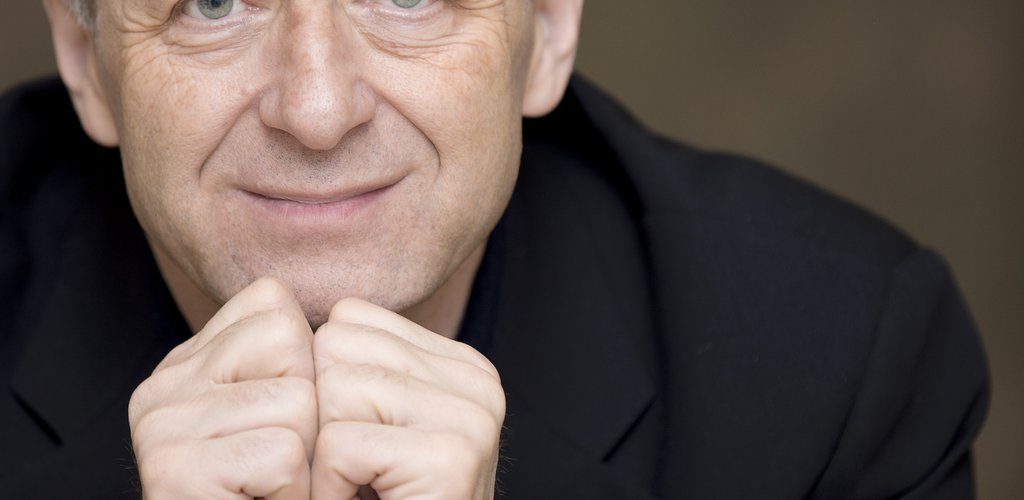INTERVIEW WITH IVÁN FISCHER
It is a peculiar feeling that yet another anniversary has arrived. It seems as if the twentieth and twenty-fifth anniversaries were only yesterday. That said, I don’t mind having this celebration at all. This orchestra has really achieved something great, and the main factor in our success I think is that we have always done it our way. Many things happened around us, life has been busy and eventful, lightning struck, society has changed with all the resultant peaks and troughs, but the Festival Orchestra kept working on as ever. We remained unaffected by adverse circumstances. It seems as if we are still doing what we started to do thirty years ago: rehearsals, concerts, rehearsals, concerts, recordings and tours have alternated in close succession. We have managed to protect our small world from negative influences. The BFO and its management have done a wonderful job for thirty years. This is how we succeeded in maintaining continuity. I consider this our greatest achievement of the last thirty years. We have attained much success and won many recording awards, and we have also been voted one of the ten best orchestras in the world. These are beautiful things, but the bottom line for me is that our every days have been very successful and every concert has been a festive occasion. Whichever concert I think of, I never feel that I should be “ashamed” of any of them: I even wrote about that in this year’s season brochure, saying I now feel as the teller of Karinthy’s story “Meeting a young man”, who meets his young self. If I now met the 32 year-old Iván Fischer, who founded the Festival Orchestra, and if he put his angry questions to me, I would not have much to be ashamed of.
The Jubilee Year starts off with a new festival, the Europe Festival, which is called Bridging Europe – Európai Hidak. It is to replace the customary Mahler Festival. What is the reason for the change and what will the Bridging Europe Festival be like?
The Mahler Festival has been a truly beautiful series, but it has already run for eight years. We found it a great pleasure, but now we are moving in a different direction. We are starting something that is, in my opinion, very much needed. We badly need Europe, and I wish not only politicians but also artists were concerned with Europe. We must do all we can in order for European people and nations to learn more about one another, get closer to one other, for them not just to foster empty clichés about each other but truly get to know other peoples’ countries. This will take shape by us organising a Europe Festival each year, called Bridging Europe. The aim of the Festival is to introduce a European country through its culture. Naturally we will be focusing primarily on music, with music being the centrepiece of the Festival, but we will also be organising short, symposium-like discussions too. I expect the Festival to shed light on the selected country, and for people to recognise their values and discover the many beauties of the particular European country we have chosen. We will select a different European country every year, one which has great musical traditions, as music tells us much more about people than anything else. Our first choice is the Czech Republic. Czech culture is incredibly rich and relatively unknown in Hungary. Czech baroque music, for instance, is wonderful, new Czech music is really exciting, and Czech Romantic music is fantastic, especially Dvořák’s.
From the very beginning, the Festival Orchestra has collaborated with a number of leading artists who people anywhere in the world would be interested in. Who will join the Festival Orchestra’s concerts this year and who will be the guest artists?
We are looking forward to welcoming some outstanding musicians this year too. In terms of pianists, Martha Argerich will be here as well as Maria Joao Pires, whom I especially like and have already worked with a lot. It is to my great pleasure that we managed to bring her here. Toradze will also be performing with us, a fantastically skilled pianist with whom we have already played Prokofiev’s piano concertos many times. Looking at the violinists, I would highlight two major names: both Leonidas Kavakos and Pinchas Zukerman will be our guests in the new season. And as far as the conductors are concerned, my relationship with Gábor Takács-Nagy continues to deepen, which I’m delighted about. I believe Gábor, a violinist turned conductor, has now truly found his feet. First he set up one of the world’s best string-quartets, and he then played his violin in the most diverse musical ensembles. Whatever he did, it has always been apparent that he is a true pedagogue: inspiring, directing and managing others. Recently he has been conducting even more, which he does marvellously in my opinion, and so it is very useful that he has an ever-closer relationship with the Festival Orchestra as our first guest conductor. But apart from Gábor we also work with other guest conductors: Dmitri Kitayenko, for instance, a favourite of ours, will be returning too.


